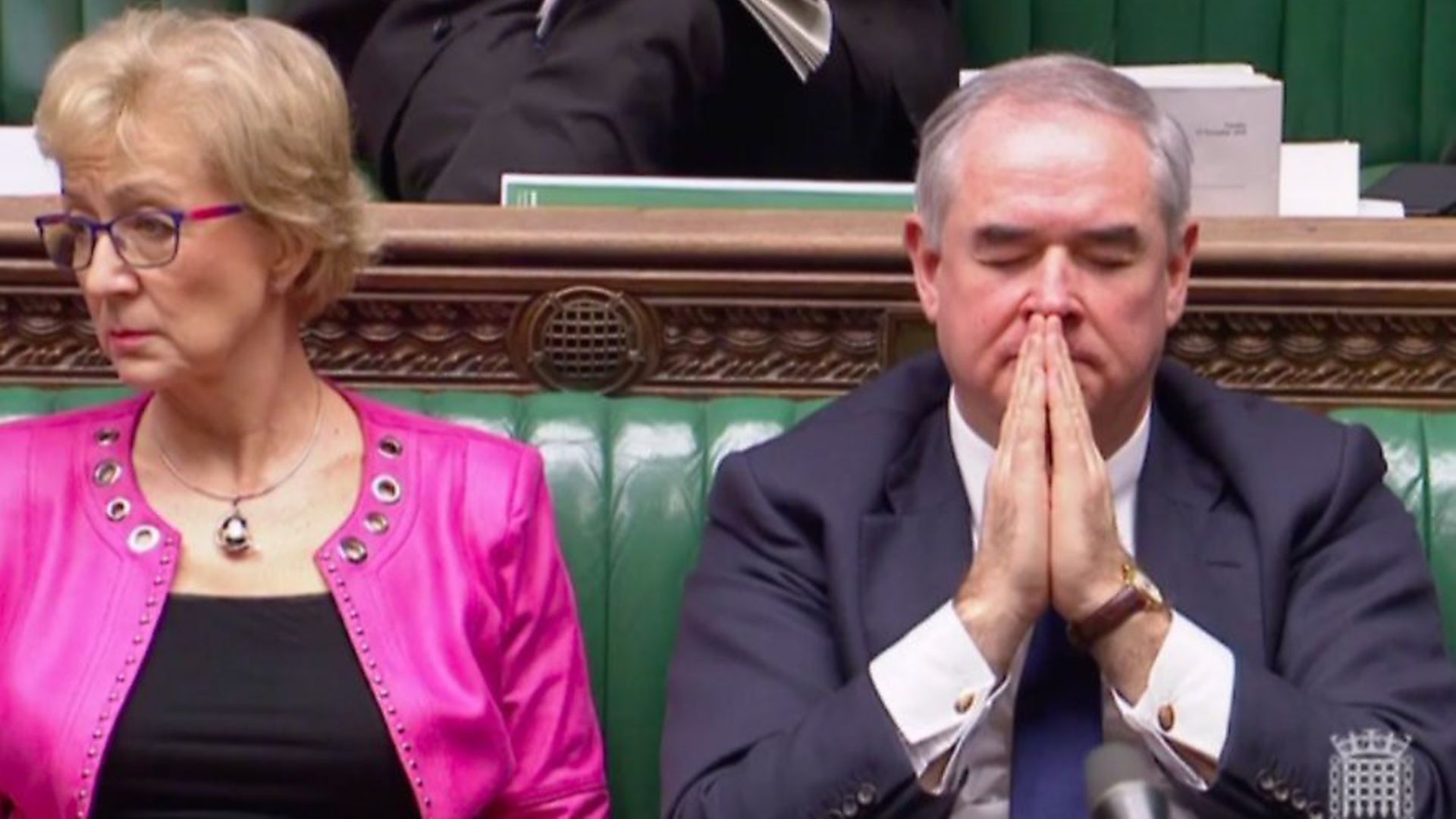
Theresa May’s government is set to release its legal advice on the Brexit deal after being found in contempt of Parliament over its refusal to publish it in full.
In dramatic scenes at Westminster, Theresa May’s Democratic Unionist Party allies joined Labour and other opposition parties to inflict defeat on the government by 311 votes to 293.
The humiliating division came shortly before Theresa May was due to open a five-day debate on her deal, amid widespread expectations that her proposals are set for rejection by MPs.
Labour’s shadow Brexit secretary Sir Keir Starmer said that the finding of contempt was ‘a badge of shame’ for the government, with ‘huge constitutional and political significance’.
It is the first time in modern history that a government has been found in contempt of Parliament.
‘It is highly regrettable that the government has let it come to this, but ministers left the opposition with no option but to bring forward these proceedings,’ said Sir Keir.
‘By treating Parliament with contempt, the Government has proved it has lost its majority and the respect of the House.
‘The prime minister can’t keep pushing Parliament away or avoiding responsible scrutiny.’
Only hours before the vote, May had told Cabinet that ‘candid’ legal advice given to ministers must remain confidential, despite a motion passed by the Commons last month demanding the release of the ‘final and full’ papers.
Attorney general Geoffrey Cox insisted the Government has ‘gone out of its way’ to satisfy the terms of the humble address to the Queen passed by Parliament on November 13 which demanded the release of the legal advice in full.
Speaking in the Commons after the vote, Leader of the Commons Andrea Leadsom said: ‘We’ve tested the opinion of the House twice on this very serious subject.
‘We’ve listened carefully and in light of the expressed will of the House we will publish the final and full advice provided by the Attorney General to Cabinet.’
MLeadsom has written to the Committee of Privileges watchdog, calling for an inquiry into the use of the humble address procedure, which had fallen out of use since the 19th century but has been revived by Labour to inflict a number of binding defeats on the Government.
The constitutional row came as:
– Bank of England governor Mark Carney warned a no-deal Brexit could result in shopping bills soaring by 10%;
– The European Court of Justice’s senior lawyer said that Article 50, which started the Brexit process, could be revoked unilaterally by the UK;
– A senior Toyota executive warned a no-deal Brexit could result in ‘stop-start production’ for weeks or months at the car giant’s UK plant;
– The BBC dropped proposals for a TV debate featuring Mrs May, Labour leader Jeremy Corbyn followed by a discussion between eight panellists including politicians from different sides of the Brexit debate.
Warning: Illegal string offset 'link_id' in /mnt/storage/stage/www/wp-includes/bookmark.php on line 357
Notice: Trying to get property 'link_id' of non-object in /mnt/storage/stage/www/wp-includes/bookmark.php on line 37






